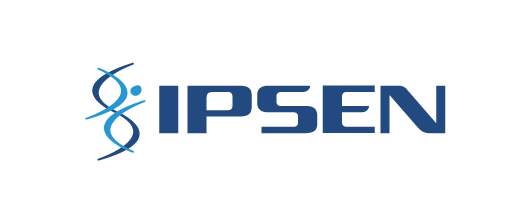In addition to this European submission, Ipsen will pursue a worldwide regulatory plan for marketing authorization submissions in the territories where it operates. As such the Marketing Authorization Application was submitted to SwissMedic (the Swiss Regulatory Agency) on July 5th 2016. In October 2014, Ipsen and Lexicon announced that they had entered into an exclusive licensing agreement for Ipsen to commercialize telotristat etiprate in all territories excluding the United States and Japan, where Lexicon retains the rights. Lexicon filed a New Drug Application in the United States on 30 March 2016 and was granted priority review on 31 May 2016 by the U.S. Food and Drug Administration (FDA).
Regulatory submission is supported by the results of TELESTAR, a pivotal, placebo-controlled phase 3 clinical trial and TELECAST, the phase 3 companion study to TELESTAR. Results from TELESTAR demonstrated a statistically significant (p<0.001) reduction from baseline in the average number of daily bowel movements over the first 12-week study period in both treatment arms (250 mg tid and 500 mg tid) compared with placebo, thereby meeting the study’s primary endpoint. A statistically significant (p<0.001) reduction in urinary 5-hydroxyindoleacetic acid (the main metabolite of serotonin) was also observed at week 12 compared with placebo in both treatment arms. The most common adverse reactions associated with the use of telotristat etiprate were nausea, abdominal pain, fatigue and gamma-glutamyl transferase increased in the pooled placebo-controlled data of the two phase 3 clinical trials, TELESTAR and TELECAST.
David Meek, Chief Executive Officer of Ipsen, said: “Ipsen is a global leader in neuroendocrine tumors, and is committed to improve patient outcomes from diagnosis to each stage of the disease including symptomatic treatment of carcinoid syndrome. We look forward to working with the EMA so that as many patients as possible can benefit from telotristat etiprate”.
About carcinoid syndrome
Well-differentiated neuroendocrine tumor (NET) is a relatively rare tumor type that arises from cells of the neuroendocrine system. Carcinoid syndrome (CS) occurs when well-differentiated NETs secrete large amounts of serotonin and other vasoactive products into the systemic circulation. Classically, symptoms associated with CS include cutaneous flushing, diarrhea, wheezing, abdominal pain, and in the long-term, valvular heart disease.
Somatostatin analogues (SSA) are the cornerstone of therapy for the relief of CS and tumor control. SSA inhibit the release of serotonin by NETs and have become first-line therapy for CS. However, SSA may not adequately control symptoms for all patients.
Due to the severe morbidity of CS and the lack of established treatment options, the population of patients with CS needing further control in addition to their SSA therapy is one with a high unmet medical need.
About telotristat etiprate
Telotristat etiprate is a novel, orally administered, inhibitor of the enzyme tryptophan hydroxylase (TPH). Through inhibition of TPH, the rate-limiting step in the synthesis of serotonin, the compound was designed to reduce the production of serotonin within neuroendocrine tumors. Carcinoid syndrome occurs when well differentiated neuroendocrine tumors secrete large amounts of serotonin and other vasoactive products into the systemic circulation. Telotristat etiprate has been developed as an adjunct to SSA therapy for the long term treatment of CS to improve symptom control in adult patients with metastatic NETs.
Telotristat etiprate received priority review status and orphan drug designation from the FDA in the United States, and has received orphan drug designation from the EMA.








